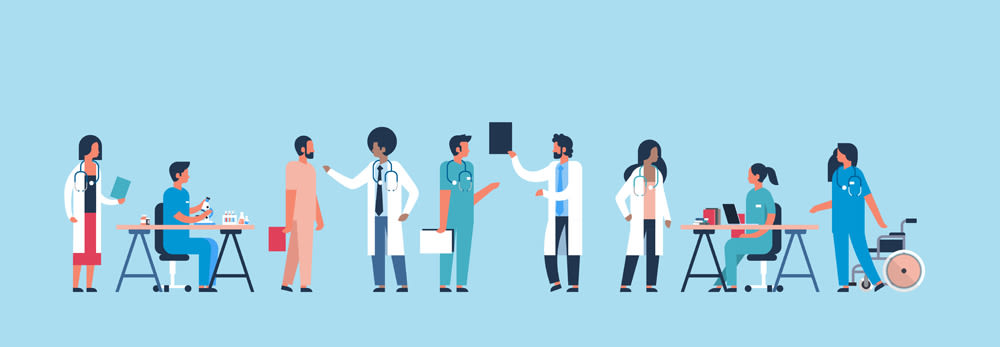Top Doctors 2019

Image: Shutterstock
Among our region’s many glowing attributes, access to top-quality health care ranks high. Castle-Connolly Medical Ltd. asked area doctors to name the medical professionals they consider to be among the best of the best.
We asked several physicians from the list some of your most burning healthcare questions—here's what they had to say. And to see this year's complete list of Top Doctors, click here. Consider it a useful starting point when you’re in search of the health care you need.
‘‘Is my phone keeping me awake?’’
“When you look at a phone or computer screen, you go from blinking 15 times per minute to just five or seven times, which can create problems with dry eyes. The blue light in computer screens and phones also affects your circadian rhythm. You want to have blue light during the daytime because it makes the brain want to stay more active. You don’t want as much of it as it becomes nighttime. We don’t recommend people use computers two hours before bed.” —Neurologist Julio Cantero
‘‘Should I still take a daily aspirin to lower my risk of heart attack?’’
“A lot has been said in the media lately about aspirin’s benefit or lack thereof in certain people, particularly those at low risk for heart disease. What’s frustrated some of us in the medical community is the failure to emphasize that it was a low-risk patient population being studied. Aspirin still carries unquestionable cardio-protective benefits for patients at high risk for heart disease, or who have already had a cardiac event.” —Cardiologist Hakim Morsli
‘‘Is it safe to let unvaccinated children play with my child?’’
“If your child has had all vaccinations up through 15 months of age and doesn’t have a serious underlying illness, then it would be relatively safe. The ideal would be [your child] having all shots through kindergarten age. If your child had any underlying immune compromise or was receiving chemotherapy, then I would strongly advise against contact. The best thing parents can do is get the childhood vaccinations recommended by the American Academy of Pediatrics, using the current schedule. I’ve worked in other countries, and I’ve seen the devastation preventable infectious diseases can cause. I feel so strongly that I tell parents if they had to choose between seeing me and getting the vaccinations, I would hands-down choose the vaccinations.” —Pediatrician John Wassenaar
‘‘Is there an effective sunscreen that’s also environmentally safe?’’
“There are two types of sunscreen. Chemical sunscreens work like a sponge, absorbing the sun’s rays. Physical sunscreens act like a shield, deflecting them. Sunscreen ingredients enter the water through swimming, plumbing and industrial waste. Sunscreens with oxybenzone and octinoxate [have been banned] in Hawaii. If you’re concerned about potential environmental effects, I recommend a physical sunscreen containing zinc oxide or titanium dioxide as active ingredients.” —Dermatologist Megan Bogart
‘‘Will cataract surgery help me see road signs at night?’’
“Cataracts cause glare around lights, which is why some patients can no longer drive at night. Cataracts also cause loss of color perception, which returns when the cataract is removed. The [laser] surgery only takes 10 minutes without any needle for anesthesia, only eye drops to numb the eye, and no bandage afterwards. The clouded lens is replaced with an artificial lens that has a prescription either for distance vision or near vision, whichever the patient chooses before surgery. People who have worn glasses most of their lives can end up not needing glasses.” —Ophthalmologist Harry Grabow